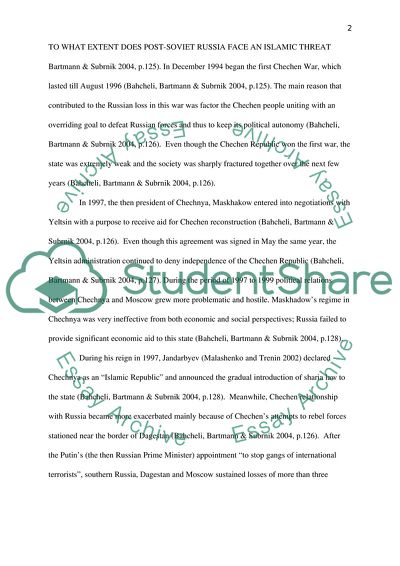Cite this document
(To What Extent Does Post-Soviet Russia Face an Islamic Threat Term Paper, n.d.)
To What Extent Does Post-Soviet Russia Face an Islamic Threat Term Paper. Retrieved from https://studentshare.org/politics/1745685-to-what-extent-does-post-soviet-russia-face-an-islamic-threat
To What Extent Does Post-Soviet Russia Face an Islamic Threat Term Paper. Retrieved from https://studentshare.org/politics/1745685-to-what-extent-does-post-soviet-russia-face-an-islamic-threat
(To What Extent Does Post-Soviet Russia Face an Islamic Threat Term Paper)
To What Extent Does Post-Soviet Russia Face an Islamic Threat Term Paper. https://studentshare.org/politics/1745685-to-what-extent-does-post-soviet-russia-face-an-islamic-threat.
To What Extent Does Post-Soviet Russia Face an Islamic Threat Term Paper. https://studentshare.org/politics/1745685-to-what-extent-does-post-soviet-russia-face-an-islamic-threat.
“To What Extent Does Post-Soviet Russia Face an Islamic Threat Term Paper”. https://studentshare.org/politics/1745685-to-what-extent-does-post-soviet-russia-face-an-islamic-threat.


